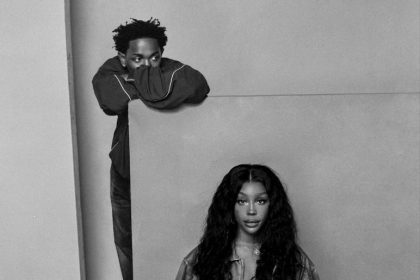In recent years, phrases like “Girl Math” and “Too pretty to work” have gained traction on social media platforms, particularly TikTok. These expressions, often used humorously, have sparked significant debate about their underlying misogynistic implications. While many women initially employed these phrases as ironic commentary on the challenges of modern life, the reality is that they can perpetuate harmful stereotypes and reinforce patriarchal norms.
The Roots of Ironic Humor
The rise of these phrases can be traced back to a broader trend where women make ironic jabs at the societal pressures they face. For instance, some women jokingly express a desire to return to a time when they relied on men for financial stability, despite the historical fact that Black women have always been part of the workforce. This irony highlights the frustrations of navigating a capitalist society that often feels overwhelming.
However, as Ashley Reese pointed out on Twitter, the humor in these phrases has lost its charm. The irony is often lost on many, leading to a dangerous normalization of the idea that women should not prioritize financial independence. This sentiment is particularly concerning in a time when economic stability is increasingly elusive for many young people.
Ironic Misogyny is Still Misogyny
Despite the humorous intent behind phrases like “Girl Math,” they can contribute to a culture that undermines women’s empowerment. The notion of being “too pretty to work” or “too hot to hold a job” can be seen as a rejection of women’s capabilities and ambitions. While these sayings are often meant to be taken lightly, the reality is that they can reinforce harmful stereotypes about women’s roles in society.
As these phrases circulate, they coincide with a troubling rise in right-wing ideologies that threaten women’s rights. The juxtaposition of these t-shirts with the current socio-political climate raises alarms about the messages being sent to young women. Many may not realize the implications of such phrases, leading to a dangerous misunderstanding of women’s empowerment.
Mourning the American Dream
The disillusionment with the American Dream plays a significant role in the popularity of these ironic phrases. In an era where individuals can work tirelessly yet still struggle to afford basic living expenses, many young people are questioning the value of traditional employment. The allure of a carefree lifestyle, as showcased by celebrities, can create a sense of hopelessness regarding the conventional path of hard work leading to success.
This sentiment is compounded by the reality that many young people are disillusioned with the corporate rat race. The idea of regressing to a time when financial independence was not a priority may seem appealing, but it also reflects a broader societal issue. The American Dream, once a beacon of hope, is losing its luster as economic challenges mount.
Empowering Women Through Awareness
It is crucial for women to recognize the potential harm in these ironic phrases and to engage in conversations about their implications. By fostering awareness, we can empower ourselves and others to challenge the narratives that seek to undermine our independence and capabilities. Humor can be a powerful tool, but it must be wielded with care and consideration for its impact.
As we navigate the complexities of modern society, let us strive to uplift one another and promote messages that encourage financial independence and self-empowerment. The fight for women’s rights is ongoing, and it is essential to remain vigilant against any rhetoric that seeks to diminish our worth.
Conclusion
The phrases “Girl Math” and “Too pretty to work” may seem harmless at first glance, but they carry deeper implications that warrant our attention. As we continue to engage with these cultural phenomena, let us do so with a critical eye, ensuring that our humor does not come at the expense of our empowerment. Together, we can redefine the narrative and celebrate the strength and independence of women in today’s society.

















